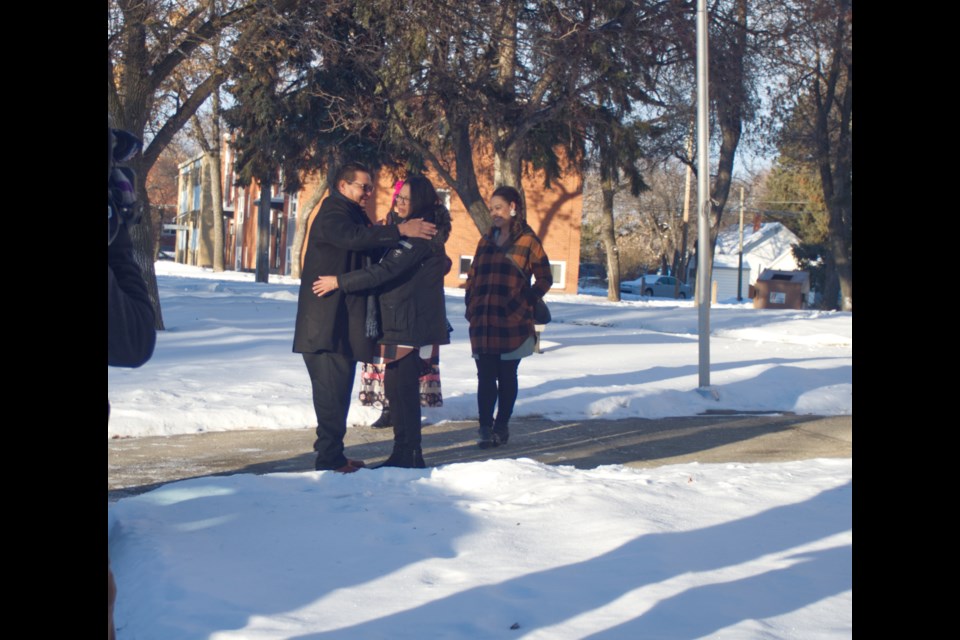YORKTON – An application for a publication ban on a future hearing for two Saulteaux sisters convicted of murder has been rejected.
Justice Donald Layh released his 29-page decision on Nov. 29 at Court of King’s Bench, noting the importance of the case, saying in his introduction that the proceedings of Odelia and Nerissa Quewezance “…will surely be writ large in the annals of Saskatchewan’s prominent court cases.”
The sisters are seeking an interim release from custody with their hearing beginning on Jan. 17, 2023, pending the Justice Minister’s review of the application that claims the sisters were wrongfully convicted for the second-degree murder of Anthony Joseph Dolff on Feb. 25 1993.
The Quewezance sisters and a cousin were at 70-year-old Dolff’s farm that day as invited guests. As a result of a dispute that occurred, “…Dolff met a violent death,” as Layh explained in his decision. Police took the Quewezance sisters into custody after discovering the murder, and a number of statements were taken.
“Current legal counsel for the Quewezance sisters now challenges how those statements were taken from young Indigenous women held in Kamsack cells, particularly in light of intervening case law proscribing the limits of voluntariness of an accursed’s statement,” Layh noted in his decision.
Ultimately, a jury entered a guilty verdict to second degree murder for each sister, rejecting a conviction of manslaughter. Both Quewezance sisters should have been eligible for parole after 10 years, but that did not occur.
Last December, an application for a ministerial review of the conviction was made by the Quewezance sisters and their lawyer, James Lockyer. Justice Minister David Lametti responded to the application, noting “…it has been determined there may be a reasonable basis to conclude that a miscarriage of justice likely occurred in this matter.”
Initially, the release application for the Quewezance sisters was slated to begin Nov. 24. However, a request to obtain copies of materials on the court file was made by APTN, and the Crown sought a publication ban as a result. The Nov. 24 court date turned into a hearing into whether or not a publication ban should be placed on further proceedings, with lawyers representing APTN and CBC in attendance - obviously opposing the ban.
The Crown’s main argument was that of trial fairness, that an untainted jury would possibly not be available without a publication ban should a new trial be ordered. Layh noted in his decision that even if a new trial is ordered, it may not occur for up to four years, which he referred to as “…a distance that will dim most people’s memory.”
Layh balanced the question of risk in justifying a publication ban on further court proceedings, calling such risk “…scant and speculative.” He added that the entirety of the Quewezance sisters’ criminal proceedings have “…lain open for public inspection and reporting for nearly three decades.” With a multitude of media reports into the sisters’ case, the judge likened a publication ban at this point to “…closing the barn door after the horse escaped.”
Layh also spoke to the public interest in wrongful conviction cases - a point Lockyer raised during the Nov. 24 hearing into a possible publication ban.
“Indeed, few criminal proceedings will engage the public interest more than someone alleging they have been wrongfully convicted. The public is entitled to know the workings of the criminal justice system, including allegations of its frailties and fallibilities,” Layh stated, summarizing that he sees “…mainly deleterious effects if a publication ban were ordered…”
Lockyer was pleased with the outcome, saying "Justice Layh’s decision is an important step in the right direction for the sisters."
When asked for comment, Public Prosecutions said they are "reviewing the decision and has nothing further to provide at this time."
The bail hearing for the Quewezance sisters is slated for Jan. 17 and 18, 2023.
— for more from Crime, Cops and Court.



